Every film is another story, one of my Columbia University professors used to say, and just because a director had enjoyed a great beginning, or has made some good movies, should not influence our evaluation of their new pictures, as bad or mediocre they may be.
This is certainly the case of A Wrinke in Time, Ava DuVernay’s foray into mainstream Hollywood with her adaptation of Madeleine L’Engle’s fantastical 1962 book about a girl’s adventurous journey to find her long-missing father.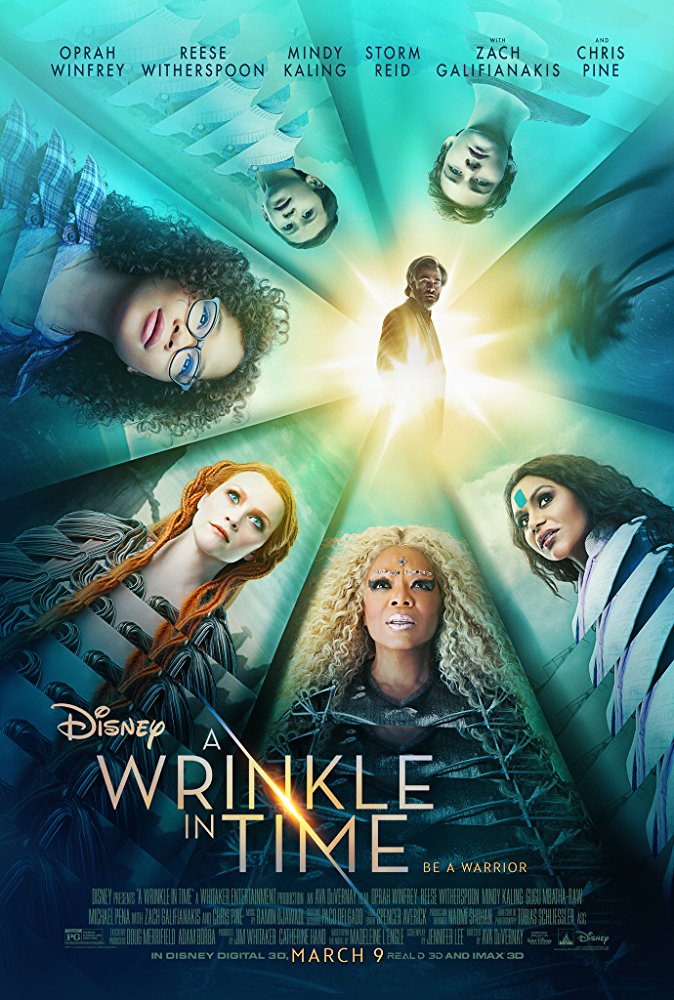
DuVernay, an ambitious but inexperienced director, who has made some interesting features, fiction (Selma) and non-fiction (the Oscar-nominated docu 13th) fell flat on her face with her first big-budget studio (Disney) movie, A Wrinkle of Time, a sharply uneven, incoherent movie, which lacked the poignancy and charm of the classic children’s novel upon which it is based.
To her credit, DuVernay has assembled a stellar cast, including Oprah Winfrey, Reese Witherspoon, Mindy Kaling, and Chris Pine.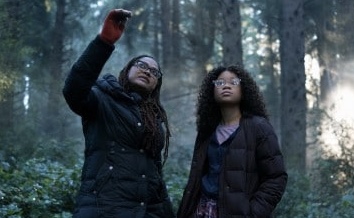
The protagonist, Meg (Stormy Reid), a bright girl of 13, has a black mother (the beautiful Gugu Mbatha-Raw) and a white father (Chris Pine), a scientist missing for four years, and a younger mixed-race adopted brother, Charles Wallace (Deric McCabe), who’s smart and clever beyond his age. Meg also has a cute boyfriend, Calvin (Levi Miller).
Three benevolent overseers (Oprah Winfrey, Reese Witherspoon, Mindy Kaling) come to the rescue, helping Meg’s inter-galactic search, stating in the process hopeful messages like, “You can do this!” and “You are a warrior!”
Although Meg is very bright, like everyone else in her family, she hasn’t been the same since Dad disappeared. Little Charles Wallace, who’s always referred to by both names, is a real smarty pants (he has all the best lines, and McCabe does a nice job with them) and exasperates Meg.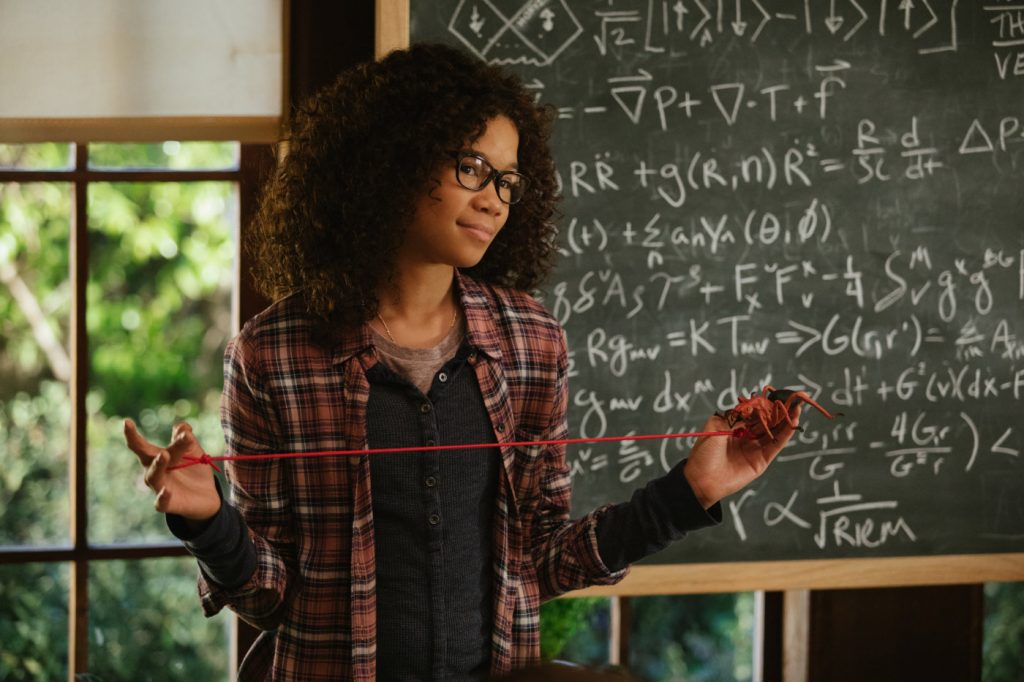
The three women, Mrs. Which (Winfrey), Mrs. Whatsit (Witherspoon) and Mrs. Who (Kaling), function as good witches who, among other merits, instruct Meg the tesser, a warp in time and space that might enable her to find her entrapped father. Soon, Charles Wallace and Calvin joins the journey.
To be honest, the shortcomings are not entirely DuVernay’s fault. The script, co-penned by Jennifer Lee (Disney’s Frozen) and Jeff Stockwell (The Bridge to Terabithia), is dull, schematic, and arbitrary in episodes.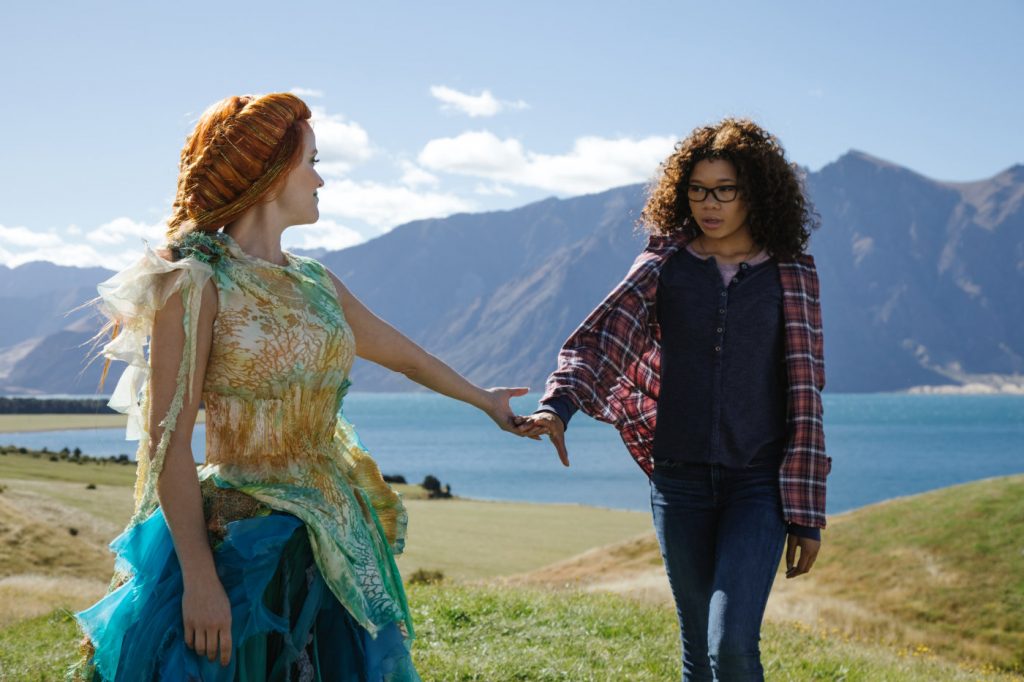
And despite the adults’ stature, ultimately, the children (and the actors who play them) are far more engaging and resourceful than their mature counterparts, who often feel like impositions and destructions (not in a good way).
The production design and visual style, such as they are, also leave much t be desired–it’s often hard to recognize and identify the various milieus, which are more weird than truly attractive. The landscapes appear busy and cramped, all right, but don’t meet the standards of Disney’s other gorgeous-looking fantasy spectacles.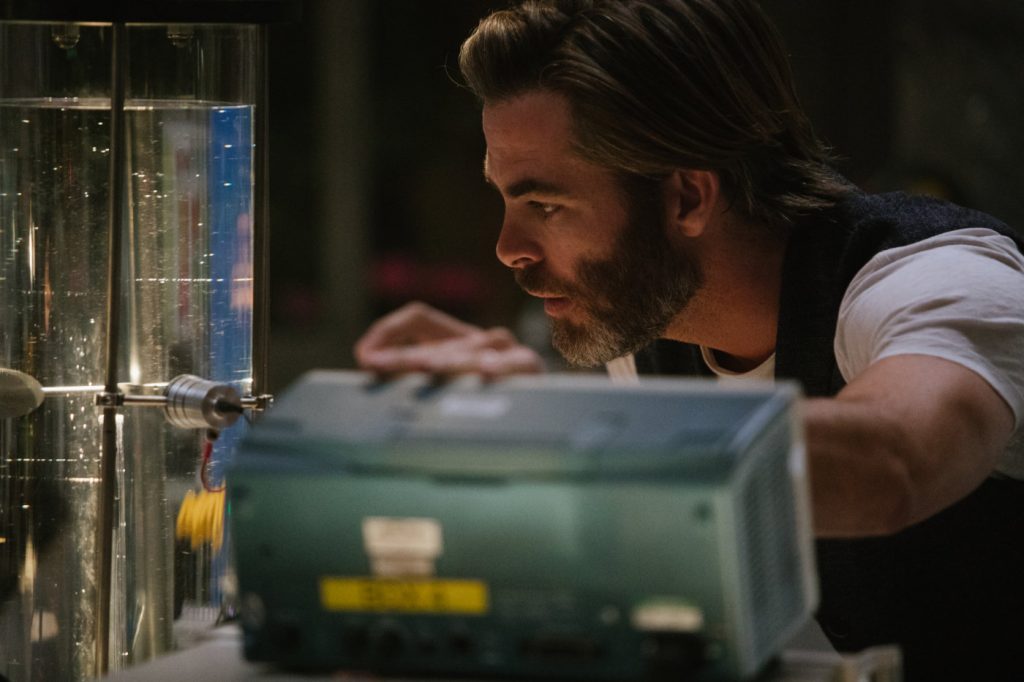 Photo: Chris Pine
Photo: Chris Pine
Hopefully, Hollywood would not exercise its dictum, “You are as good as your last picture,” and would give DuVernay further chances to demonstrate her considerable talents.



